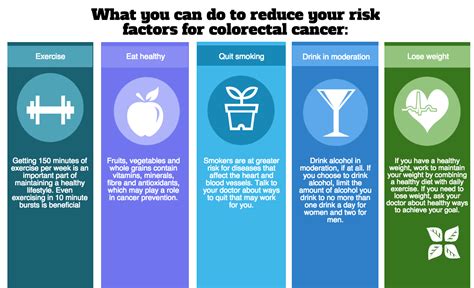How to Prevent Colon Cancer: A Comprehensive Guide
Colon cancer, a leading cause of cancer-related deaths, is a serious concern. However, understanding its risk factors and implementing preventative measures significantly reduces your chances of developing this disease. This comprehensive guide explores actionable steps you can take to protect your colon health.
Understanding Colon Cancer Risk Factors
Before diving into prevention, it's crucial to understand what increases your risk. While some factors are beyond your control (like genetics), many are modifiable lifestyle choices.
Non-Modifiable Risk Factors:
- Age: The risk increases significantly after age 50.
- Family History: A strong family history of colon cancer, particularly in first-degree relatives, elevates your risk.
- Genetics: Certain genetic syndromes, like Lynch syndrome and familial adenomatous polyposis (FAP), substantially increase susceptibility.
- Race/Ethnicity: African Americans have a higher incidence rate than other racial groups.
- Personal History of Inflammatory Bowel Disease (IBD): Conditions like Crohn's disease and ulcerative colitis significantly increase the risk.
Modifiable Risk Factors:
- Diet: A diet low in fruits, vegetables, and fiber, and high in red and processed meats is a major risk factor. Processed meats, in particular, are strongly linked to increased risk.
- Physical Inactivity: Lack of regular exercise contributes to various health problems, including colon cancer.
- Obesity: Maintaining a healthy weight through diet and exercise is crucial for reducing your risk.
- Smoking: Smoking is linked to numerous cancers, including colon cancer.
- Excessive Alcohol Consumption: Heavy alcohol use increases your risk.
Proactive Steps to Prevent Colon Cancer
Now that we've identified the risks, let's focus on the proactive steps you can take to protect your health.
Dietary Changes for Colon Health:
- Increase Fiber Intake: A high-fiber diet, rich in fruits, vegetables, and whole grains, promotes regular bowel movements, reducing the time carcinogens spend in the colon. Aim for the recommended daily intake.
- Limit Red and Processed Meats: Reduce consumption of red meat (beef, pork, lamb) and avoid processed meats (bacon, sausage, hot dogs) as much as possible.
- Embrace a Plant-Based Diet: Incorporating more fruits, vegetables, legumes, and whole grains into your diet offers a wealth of protective nutrients.
- Consider Supplements: While a balanced diet is key, some supplements like calcium and vitamin D may offer additional protective benefits. Always consult your doctor before starting any new supplements.
Lifestyle Modifications:
- Regular Exercise: Aim for at least 150 minutes of moderate-intensity aerobic activity or 75 minutes of vigorous-intensity aerobic activity per week.
- Maintain a Healthy Weight: Losing even a modest amount of weight can significantly reduce your risk if you are overweight or obese.
- Quit Smoking: Smoking cessation is crucial for overall health and reduces your risk of several cancers.
- Limit Alcohol Consumption: If you drink alcohol, do so in moderation.
Screening and Prevention:
- Regular Screening: Starting at age 45 (or earlier if you have a family history), regular colonoscopies are vital for early detection and prevention. Your doctor can recommend the appropriate screening schedule based on your individual risk factors. Early detection is key for successful treatment.
- Polypectomy: During a colonoscopy, precancerous polyps can be removed, preventing them from developing into cancer.
Conclusion: Taking Control of Your Colon Health
Preventing colon cancer is largely within your control. By making informed lifestyle choices, including dietary modifications, regular exercise, and consistent screening, you significantly reduce your risk. Remember to consult with your healthcare provider for personalized advice and to develop a prevention plan tailored to your specific needs and risk factors. Your proactive approach to colon health can make a profound difference in your overall well-being.
